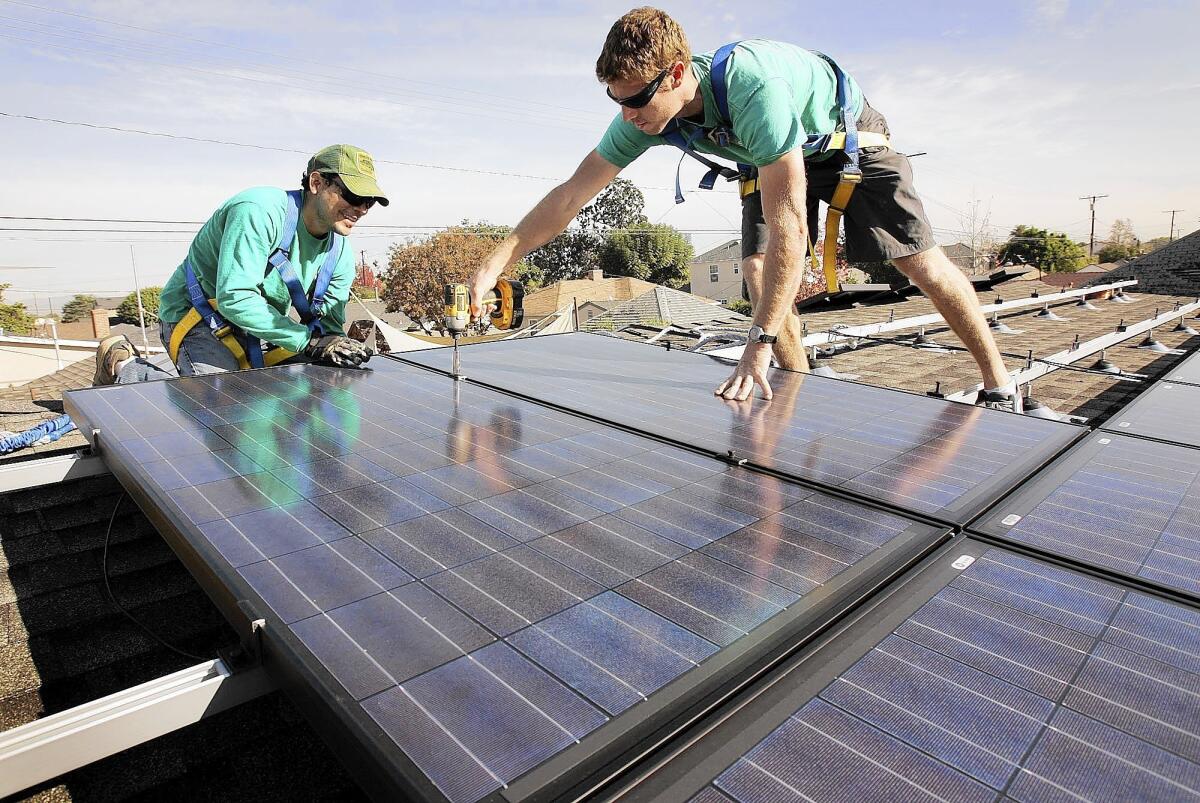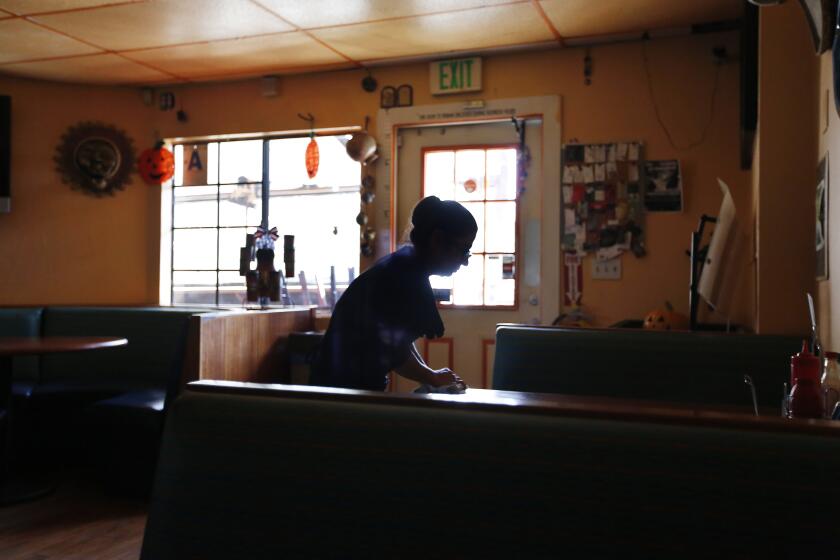California will still require rooftop solar panels on new homes â at least for now

State officials declined Wednesday to approve a program that would allow new homes to be built in Sacramento without rooftop solar panels â handing at least a temporary victory to clean energy advocates, who said the program would cripple Californiaâs first-in-the-nation home solar mandate.
The California Energy Commission postponed a decision on a controversial proposal from the Sacramento Municipal Utility District after hearing from dozens of solar industry representatives, environmental activists and utility ratepayers. Under SMUDâs proposal, home builders would be allowed to take credit for electricity produced at existing solar farms, rather than installing solar panels on new single-family homes and low-rise multifamily buildings.
Building industry officials urged approval of the program, saying it would help keep Californiaâs already-high housing prices from rising even further.
But critics said it would undermine Californiaâs home solar mandate, which takes effect on Jan. 1, 2020. They said approval of the program would set a precedent that could be followed by other utilities, such as Pacific Gas & Electric, which submitted a letter this week supporting SMUDâs proposal.
âLast year, California told the world it was requiring rooftop solar on new homes,â Don Osborn, president of the Elk Grove, Calif.-based solar installer Spectrum Energy, told the commission. âIt would be an embarrassment to the state and a setback for clean energy if you let this through on technicalities.â
State officials will vote this week on a proposal to allow âcommunity solarâ farms instead of rooftop panels.
When the Energy Commission approved the requirement for solar panels on new homes, it also gave builders the option of supplying power from an off-site âcommunity solarâ facility. The alternate compliance option mollified critics who said rooftop solar would price some home buyers out of the market.
Clean energy advocates figured the exception would be utilized by multifamily developments without sufficient space for rooftop solar, and that community solar projects would be small facilities designed to serve nearby areas. But the Energy Commission chose not to define âcommunity.â
That choice generated intense debate on Wednesday.
SMUDâs community solar proposal included 100 megawatts from small existing solar farms within its service territory, which spans most of Sacramento County and parts of Placer and Yolo counties. But it also included 160 megawatts from a 550-acre facility and 60 megawatts from faraway Fresno County.
Solar industry officials said SMUDâs proposal made a mockery of the term âcommunity solar.â They were joined in that argument by the nationâs largest home builder, Miami-based Lennar Corp., which broke ranks with the rest of the industry and urged the Energy Commission to reject the proposal.
SMUDâs program âexploits what was supposed to be an exception,â said Todd Farhat, utility relations manager for SunStreet, Lennarâs solar installation subsidiary. The Sacramento proposal, he added, âslows down the innovation necessary to meet Californiaâs long-term climate and energy goals.â
SMUD officials countered that their program had been thoroughly vetted by Energy Commission staff, who found that it complied with the agencyâs home solar mandate. They also pointed out that they were offering guaranteed bill savings, while helping to meet the stateâs climate change goals.
âThe mandate to add solar is triggered by the construction of a new low-rise family home or building. And that solar can be added either as rooftop or as an approved community solar option,â said Tim Tutt, a SMUD program manager for regulatory affairs. âIn either case, solar will be added.â
Critics, though, said the Sacramento program wouldnât produce the unique benefits of on-site solar. When paired with batteries, for instance, rooftop solar panels can help households keep the lights on during a blackout. They can also reduce strain on Californiaâs aging electrical grid infrastructure.
PG&Eâs CEO has said wildfire-prevent blackouts could continue for another decade.
Several members of the Energy Commission also raised concerns about SMUDâs community solar program.
Commissioner Janea Scott described the broadness of SMUDâs proposal as âproblematic,â saying it could lead to few homes in the Sacramento area being built with solar panels or energy storage.
Commissioner Patty Monahan noted that the program would guarantee the typical household energy bill savings of $20 per year, compared to the $35 per month that the Energy Commission estimated the average single-family home would save with rooftop solar.
David Hochschild, who chairs the Energy Commission, also said he had concerns âwith the value the customerâs getting.â
âThis is kind of on us, because we didnât specify with great specificity what a community solar project actually looks like,â Hochschild said.
Commissioner Andrew McAllister, who oversaw development of the home solar mandate, said the agency was trying to create flexibility for builders. But he asked his colleagues to postpone a decision on the Sacramento proposal while the commission takes a shot at defining community solar.
Even if the Sacramento program is ultimately approved, McAllister said, ânobodyâs scrapping the rooftop requirement. Itâs still there.â








